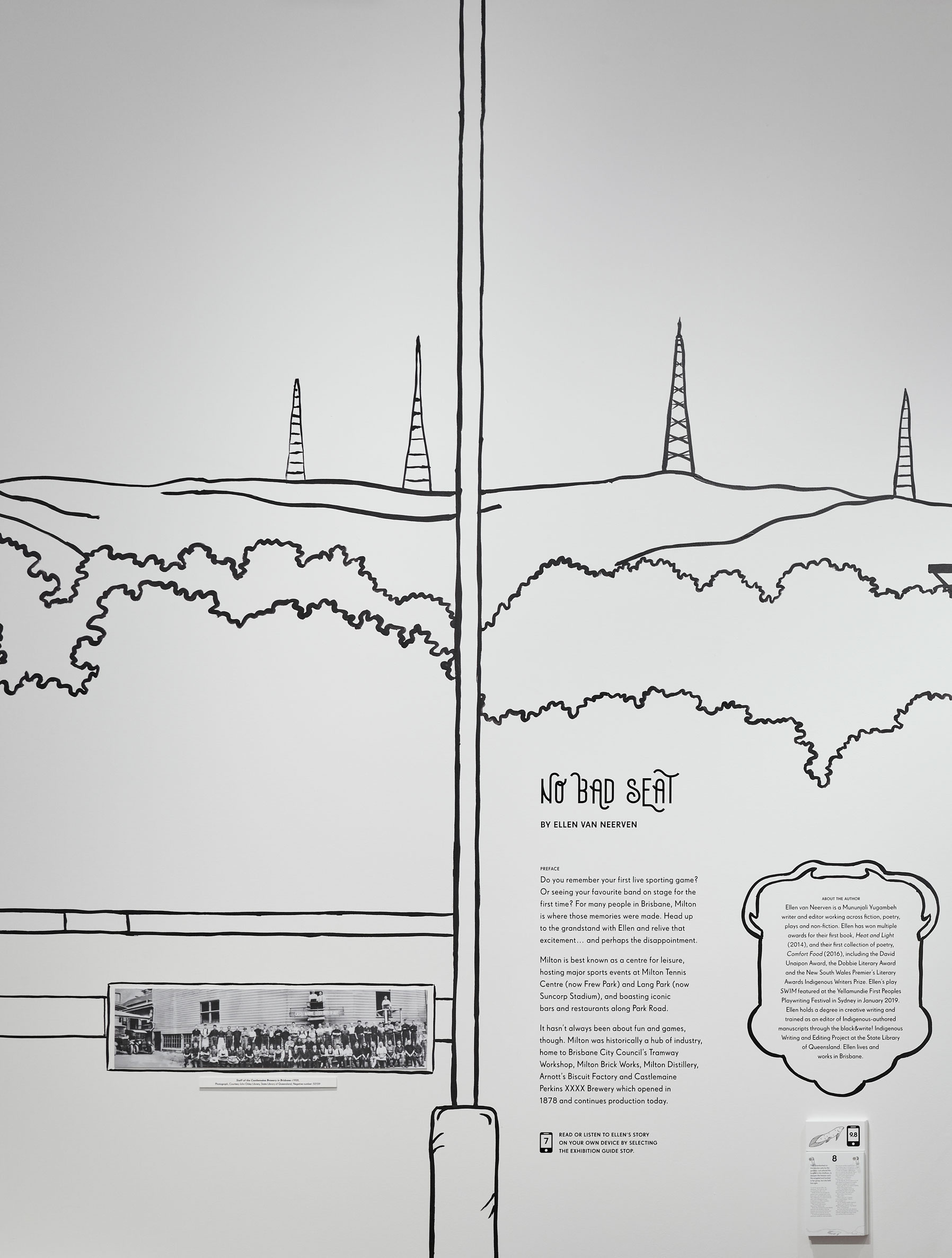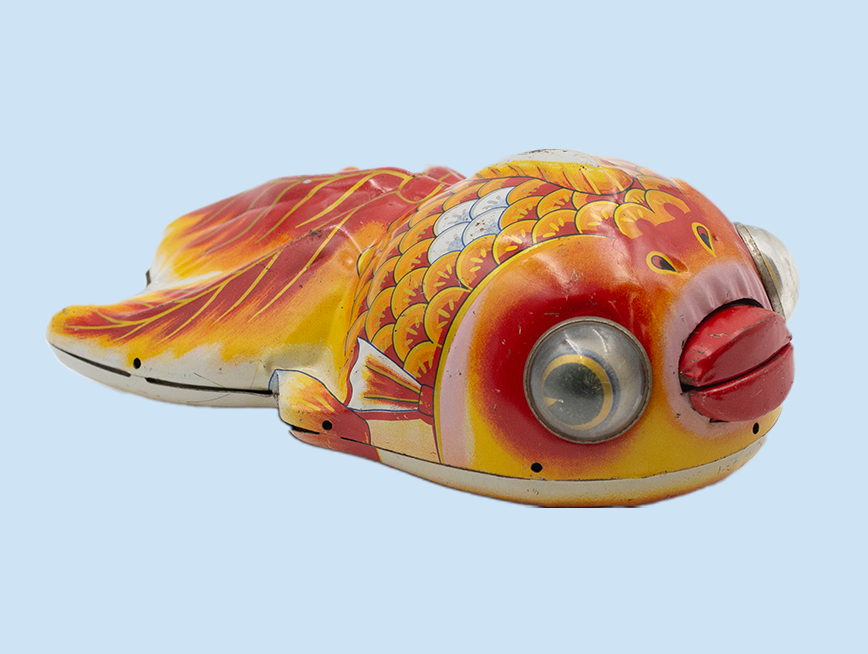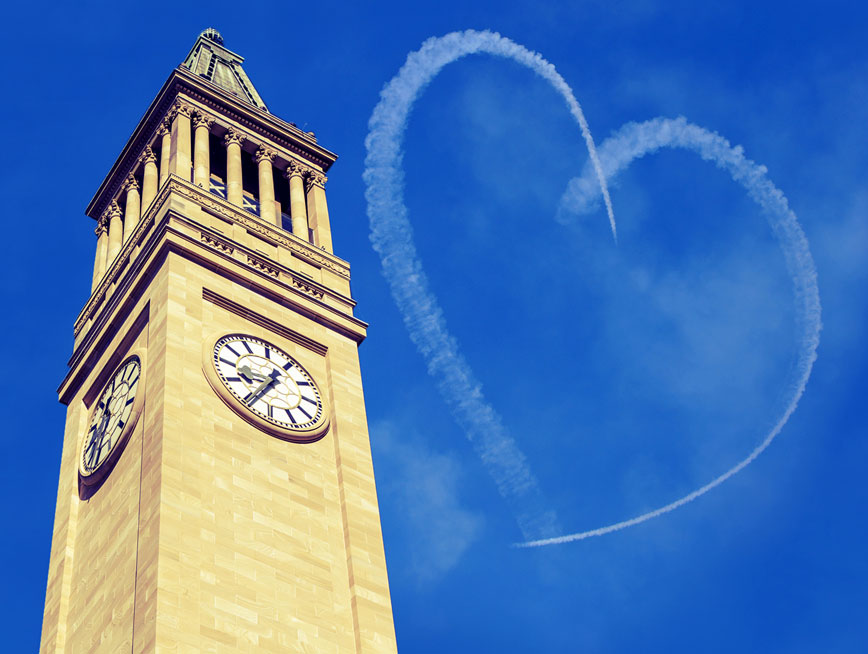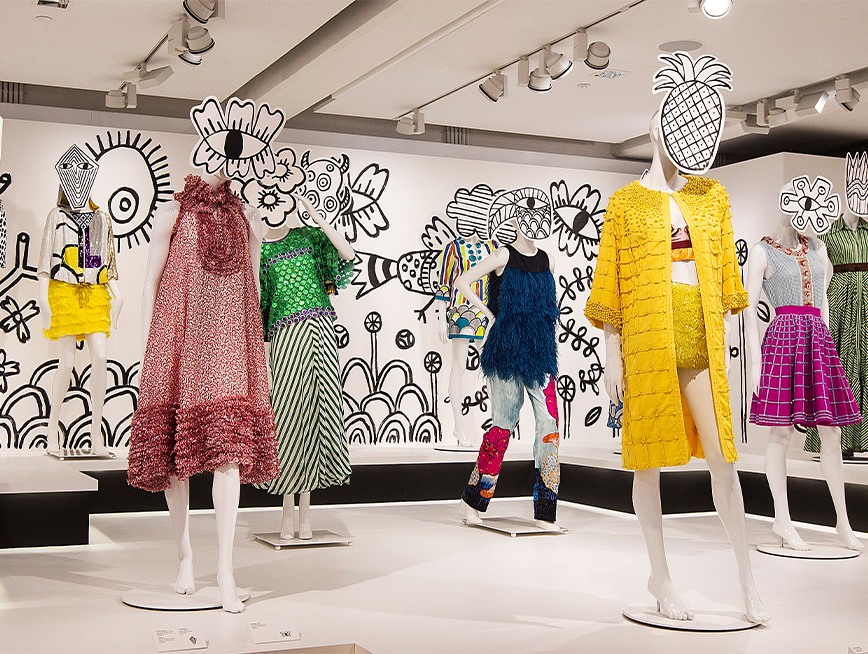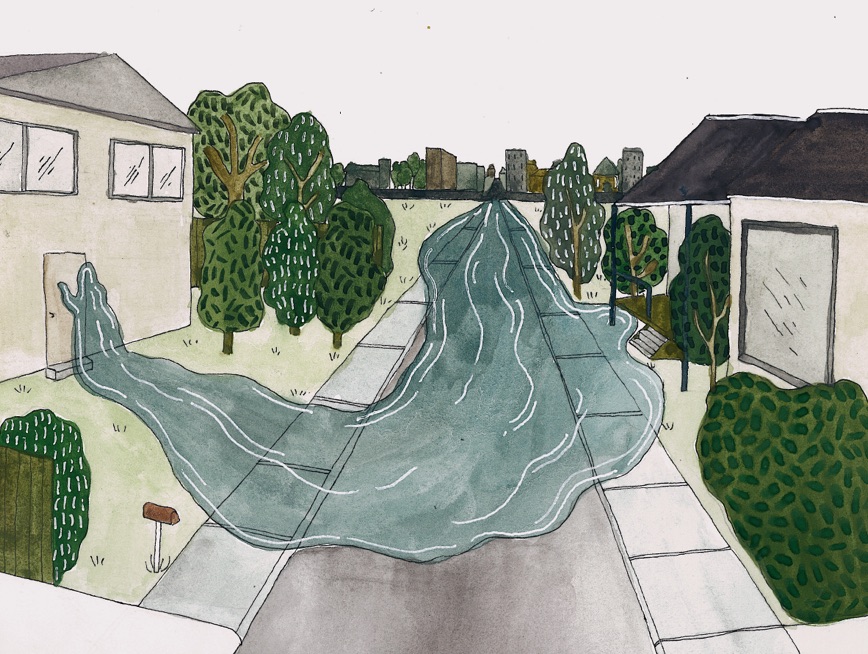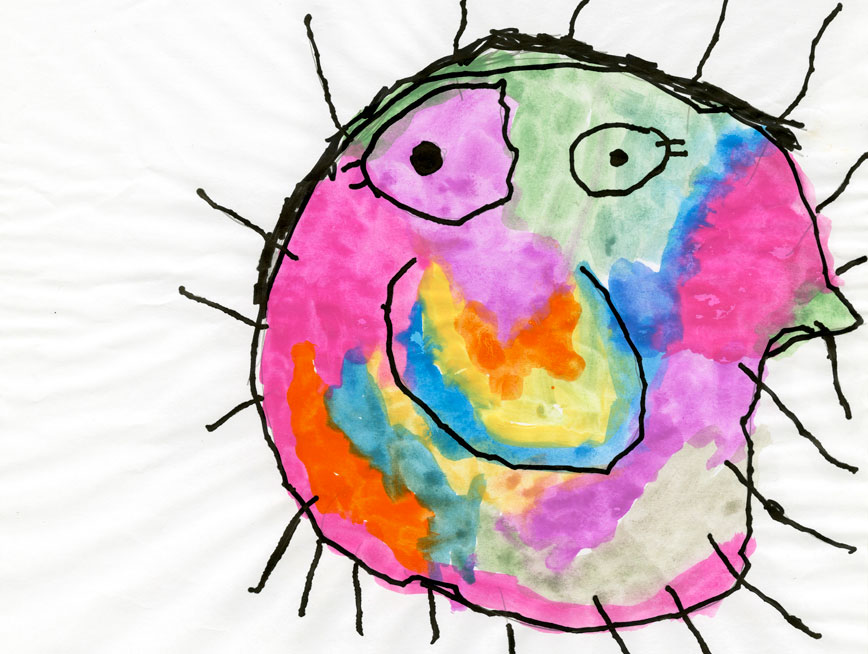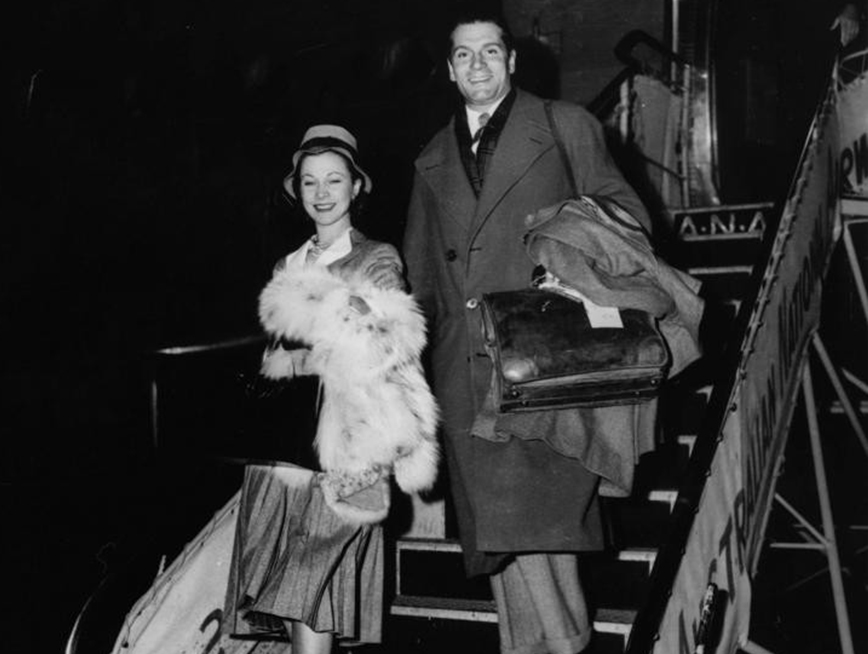Ellen van Neerven is a Mununjali Yugambeh writer and editor working across fiction, poetry, plays and non-fiction. Ellen has won multiple awards for their first book, Heat and Light (2014), and their first collection of poetry, Comfort Food (2016), including the David Unaipon Award, the Dobbie Literary Award and the New South Wales Premier’s Literary Awards Indigenous Writers Prixe. Ellen’s Play SWIM featured at the Yellamundie First People’s Playwriting Festival in Sydney in January 2019. Ellen holds a degree in creative writing and trained as an editor of Indigenous-authored manuscripts through the black&write! Indigenous Writing and Editing Project at the State Library of Queensland. Ellen lives and works in Brisbane.
Your short story No bad seat, which you wrote for The Storytellers at Museum of Brisbane, features a young girl at a footy match at Lang Park. It’s a really familiar story for a lot of us. Is it based on some of your own experiences?
Yes, it’s based on those feelings of excitement and passion that I felt going to Lang Park when I was young. There’s nothing like watching a footy match live! It’s also about gender, as you alluded to, I was writing it for all the girls and women and gender-non-conforming people who love footy just as much as the boys and men!
You found huge success with your first novel Heat and Light (2013) and subsequently with your poetry collections Comfort Food (2016) and Throat (2020). You seem to span the genres of poetry and fiction so effortlessly. Are you drawn more strongly to either one?
I try to approach an idea with an open mind and think about what genre is going to tell that story best. Sometimes that is the short story form, as ‘No Bad Seat’ is. Sometimes it’s a poem. Sometimes I am attempting to create a new form because the existing forms do not serve me.
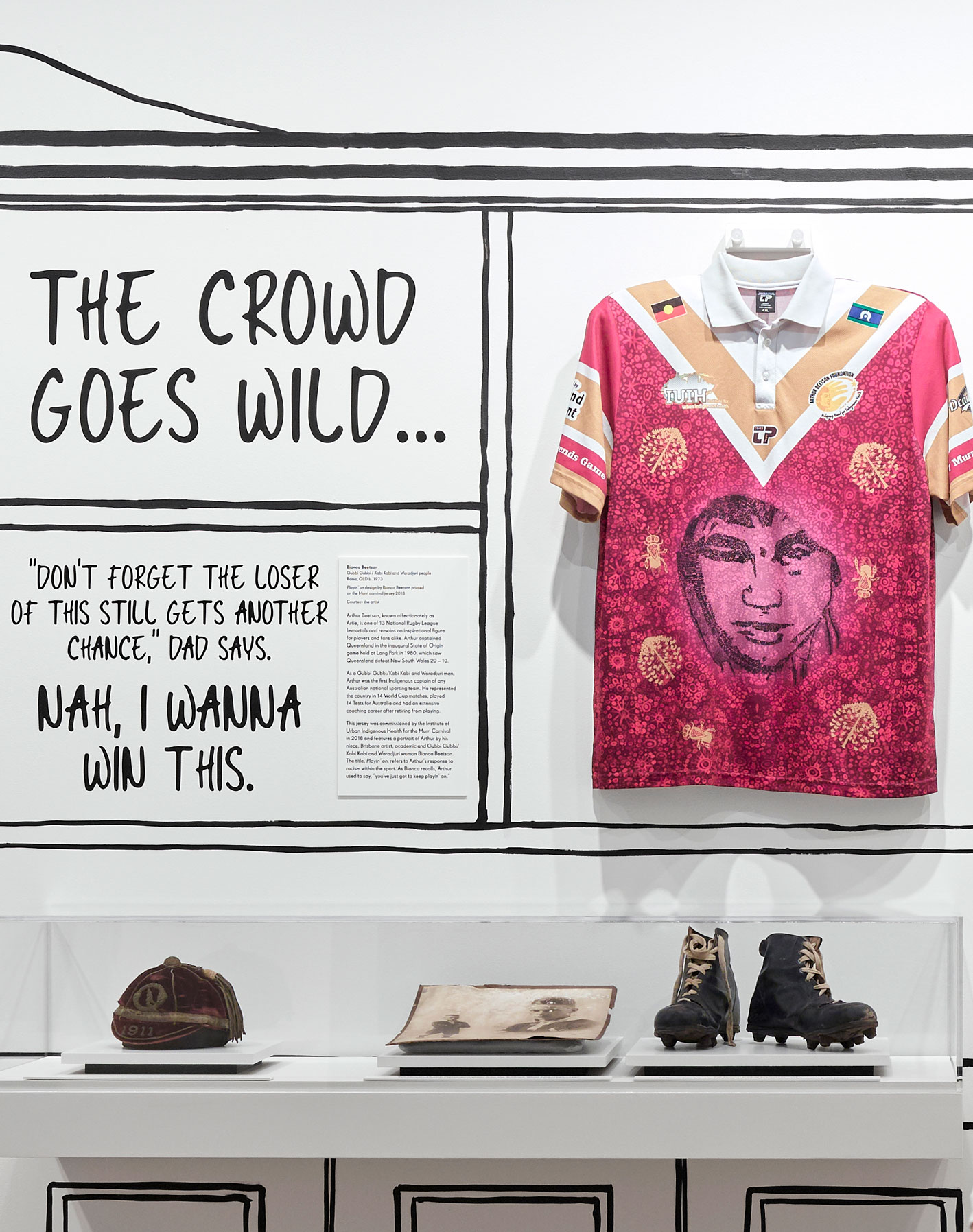
How important is exploring identity in your writing?
Very important. I’m writing characters based on people that are not reflected within mainstream stories. I think that’s always a good place to start. What stories can I tell or am I close to that haven’t been told?
Is there anything about living in Brisbane that most inspires/informs your poetry?
I’m a proud Mununjali person, and south east Queensland is home for me on many levels. I was born here, my mob are from this area, and I feel very homesick when I’m away for too long. I feel a bit connected to the poetry of the place. Whether it’s walking in the bush or walking on a street, words come through me.
What advice do you have for emerging writers hoping to have their work published?
Stay true to yourself. Read a lot and understand where you work fits in. For example if you are a poet, what type of poetry do you write? Is it archival poetry like Natalie Harkin? Is it prose poetry, is it influenced by protest poetry, eco-poetics, is it performative, is it lyrical, is it comedic? Then find the publications that publish that particular genre and style and aesthetic.
